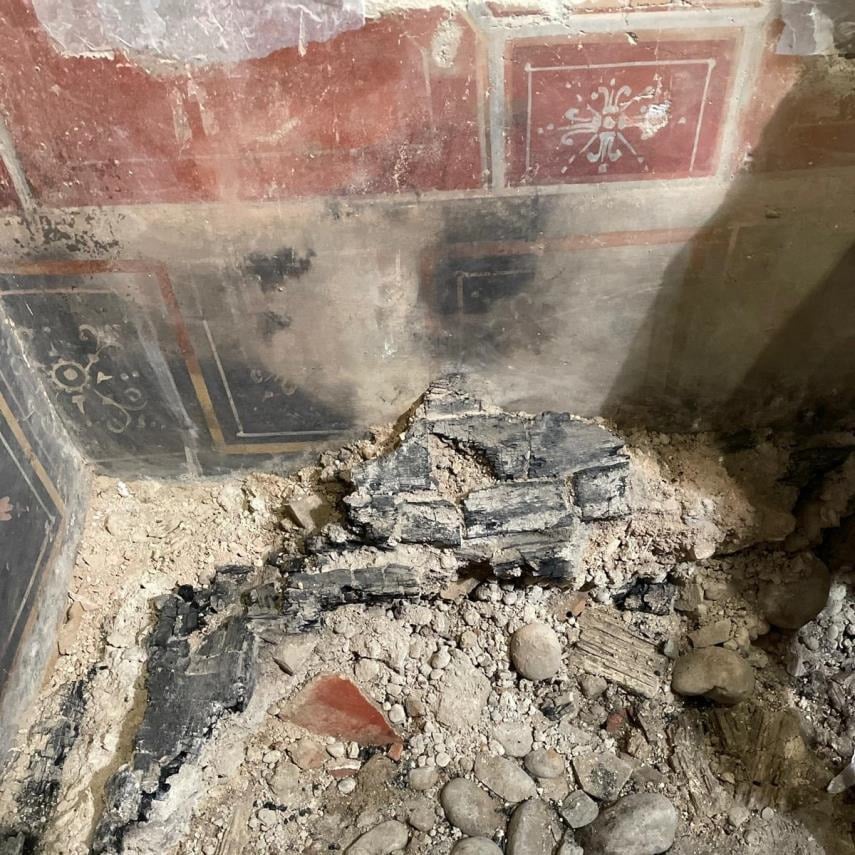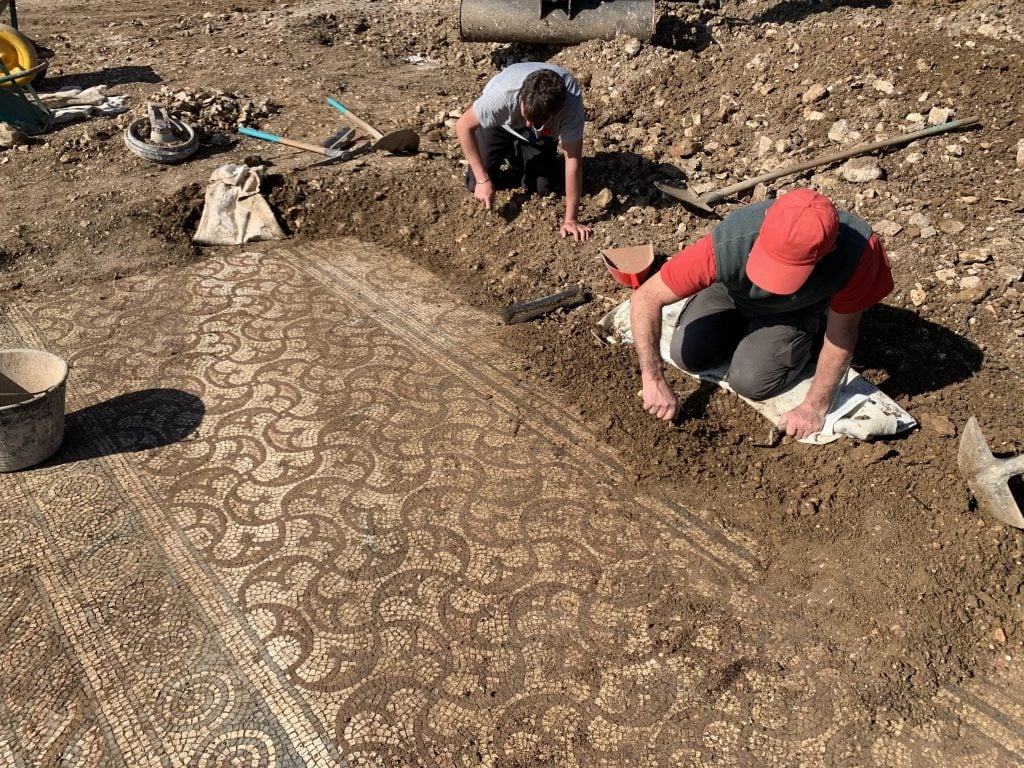Archaeology & History
‘A Unique Find, Without Any Precedent’: Construction Workers Discover a ‘Miniature Pompeii’ Buried in Verona
Workers have unearthed gorgeous ancient Roman frescoes at an abandoned cinema.

Workers have unearthed gorgeous ancient Roman frescoes at an abandoned cinema.

Sarah Cascone

Construction workers renovating an abandoned cinema in the northern Italian city of Verona have stumbled upon what’s been dubbed a “miniature Pompeii” during excavations of the building’s basement.
The ancient site was probably abandoned after a fire, but “the environment was preserved intact, with the magnificent colors of the frescoed walls dating back to the second century,” Superintendency of Archeology, Fine Arts and Landscape of Verona, Rovigo, and Vicenza said in a statement, noting that the newly discovered artwork “evokes a miniature Pompeii.”
The modern-day building, the former Astra cinema, has been closed for 20 years, with construction first turning up signs of the lost Roman structure back in 2005.
The second-century ruins contain charred wooden furniture and the collapsed remains of the ceiling. Its original purpose has not yet been identified, but there was a heating system in both the walls and the floor, which is tiled with decorative tesserae.
The nation’s cultural ministry told the Independent this was “a unique find, without any precedent in Italy.”

An ancient Roman mosaic discovered near Verona is being excavated and preserved. Photo courtesy of the Superintendency of Archeology, Fine Arts and Landscape of Verona, Rovigo, and Vicenza.
Other recent archaeological discoveries near Verona include an incredibly well-preserved Roman mosaic floor from the foundations of a lost Roman villa outside what is now the town of Negrar di Valpolicella. It was found buried beneath vines, and is thought to date back to the third century.
Local officials hope to open the historical site to the public, and are reviewing a proposal from a private company to sponsor preservation work.
In the South of Italy, the city of Pompeii was famously destroyed by the eruption of Mount Vesuvius in the year 79. It remained buried under layers of volcanic ash until excavations began in the 18th century, revealing ancient Roman homes in a state of remarkable preservation.